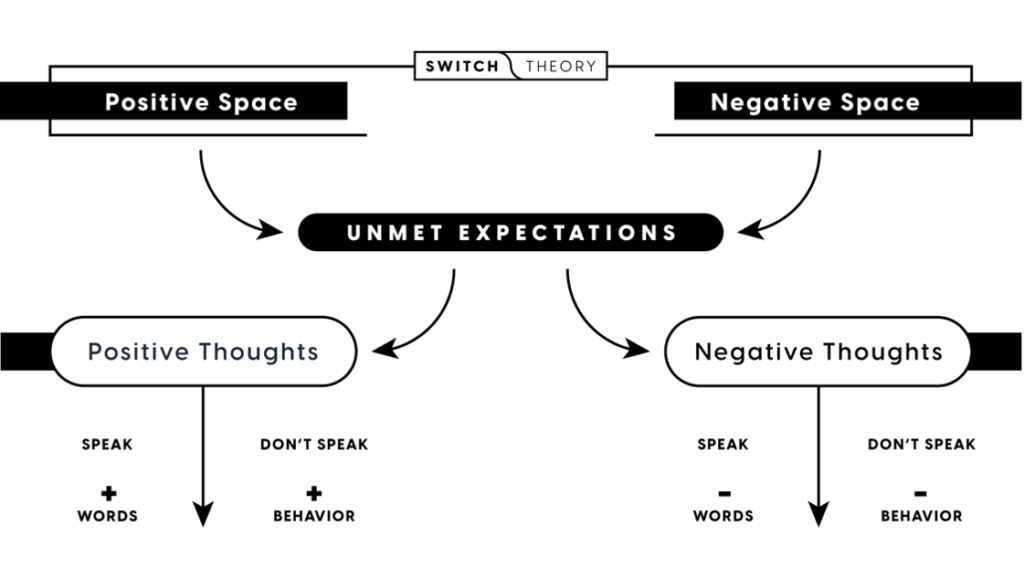Escaping Negative Parenting Habits
Escaping Negative Parenting Habits
Categories: AACC BLOG
by Ashley Elliott, MS, LMHCA

The role of a parent is one of the most important yet challenging roles one can hold. When faced with complex relationship challenges such as addiction, developmental disorders, or grief, parental stability may waiver. For those who are trained as a counselor or parenting coach, parenting styles are frequently an important portion of the education. To give a quick recap, parents who demonstrate high levels of demand and acceptance are defined as authoritative parents. Parents who show high levels of demand but low levels of acceptance are identified as authoritarian parents. Parents who show acceptance but not demand are frequently termed permissive parents and those who are low in both demand and acceptance are often referred to as neglectful (Charoenwongsak, et al., 2017).

While training and assessment procedures imply that parents use one style, research reveals that parenting styles are malleable and can be improved upon or may worsen depending upon circumstances such as divorce or sickness. (Holliday, 2014; Lee, 2014; Williams, 2012; Zandiveh et al., 2015). If one’s state of mind shifts, a parent may act in more strict or lenient ways. The goal of this article is to help counselors and parents understand what happens cognitively that impacts the way one parents, thus helping parents rebalance and use the authoritative parenting style, which has been found to be the most effective style to utilize(Berge et al., 2016).
Highly punitive parental behavior has been found harmful to a child’s mental state (Zubizarreta et al., 2019), and practicing positive parenting techniques brings benefit to the child even amidst suffering (Ellingsen et al., 2014). The impact of parenting extends outside of the family as well. Shakya and associates found that adolescents were 38-43% less likely to engage in negative activities such as substance use if they had a friend whose parent used an authoritative parenting style (2012).
When a parent uses harmful parenting techniques, what is going on underneath the surface? In addition to the genetic and environmental factors that impact ones parenting habits, the individual’s thinking patterns are highly influential in the way one will implement discipline and show love to their child. If an individual has positive thoughts, feelings, and emotions, he or she is said to be in a positive space. If, however, the person experiences frequent negative thoughts, feelings, and emotions, it could be an indicator that the individual is in a negative space. Individuals tend to begin relationships in a positive space with hopeful expectations about the future. But in time, as expectations are not met, the person moves to a negative space. Individuals switch back and forth between a positive to a negative space in relationships; this concept has been called Switch Theory (Elliott & Elliott, 2020).

A parent’s thoughts and needs drive their behavior, and all parents switch from a positive to a negative mental space at different times for various reasons. Parents engage in a battle between caring for their own personal needs and the needs of their child. It appears that parents who remain in a positive space are likely to meet their own needs outside of the parent-child relationship, enabling them to focus on the needs of the child rather than themselves.
Sometimes, parents using a neglectful style are unaware of many of the family issues, residing in a negative mental space regarding other relationships as well. Parents using an authoritarian style might switch to a negative space more quickly than permissive and authoritative parents. When their child acts out, there may be a sense of order that is at risk of being disrupted. As parents make the issue about them being judged by others, the behavior is perceived as a personal blow, catapulting them to a negative space. A parent using a permissive style may blindly stay in a positive space, sweeping destructive behavior under the metaphorical rug. But again, the positive status is more about the parent feeling that their world is afloat rather than engaging the events that are trying to surface.
Could raising awareness of one’s personal mental state regarding the relationship provide insight and mobility to parents, allowing them to move from a negative to a positive space? Teaching Switch Theory and then utilizing cognitive reframing tools may help parents move toward using an authoritative parenting style. Cognitive reframing tools are mechanisms that help individuals think differently about a topic. As thoughts are restructured, individuals can create new thinking habits that will strengthen relationships.
As professionals, helping parents communicate from a positive space gives them the best chance toward winning as a family. Assisting them with an understanding of their parenting style and the underlying needs behind using the style may promote growth.

Chuck and Ashley Elliott are authors and content creators who have partnered with YouVersion, RightNow Media, and other international organizations to equip people to build spiritual and relational success. Chuck, as a pastor, and Ashley, as a counselor, have devoted their lives to helping people fight negativity and leave a legacy. They are advisory board members for the AACC’s International Christian Coaching Association (ICCA) and have earned master’s degrees in counseling, education, and organizational leadership. Chuck and Ashley live in Indiana with their three sons.
